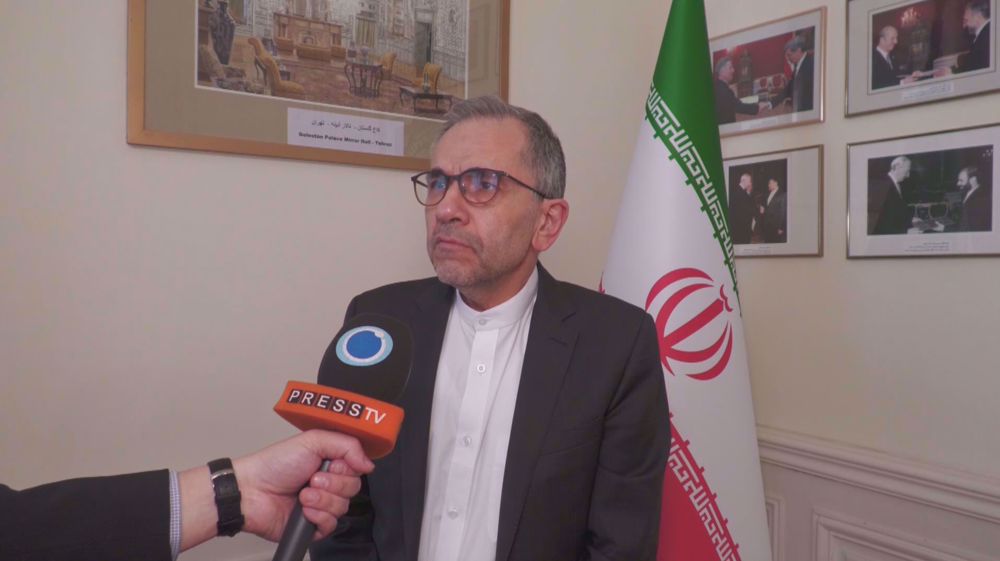'US argument of nuclear deterrence not valid'
More than 70 years after the US atomic bombings of the Japanese cities of Hiroshima and Nagasaki, a global treaty has been approved by the United Nations to ban the bombs -- a move that many hope will lead to the elimination of all nuclear arms. Meanwhile, the US, which is the owner of the biggest nuclear arsenal in the world and the only country that has ever used nuclear weapons against another, boycotted the vote, arguing that its nuclear weapons are necessary for deterrence purposes. Following is a synopsis of Press TV’s interview with Jan Oberg, the founder of transnational.org, and Jim Walsh, with Security Studies Program at MIT University, about the efficiency of such deterrence strategy.
Jim Walsh maintains that the US nuclear arms have in fact acted as a hindrance to the spread of such weapons in the world in recent years, arguing against the destruction of the US nuclear arsenal, saying that would force the country’s allies in Asia and Europe to produce such weapons for self-defense.
“A world without a nuclear weapon is a good thing. But if the US, for example, withdraws its nuclear umbrella in Asia and in Europe, then that would actually lead new countries to acquire nuclear weapons. South Korea and Japan are fearful of North Korea and without a US shield, [they] might decide to pursue their own nuclear weapons program,” Walsh analyzed.
“So, in some way deterrence has helped reduce the spread of nuclear weapons,” the analyst added.

However, Jan Oberg, the other panelist on the show, dismissed Walsh’s comments on the US deterrence policy, saying that such a strategy has repeatedly failed to work in confrontational situations.
“It promises as a theory that both parties are willing to kill millions of people that is what should make both parties avoid it. But if things break down, if psychology plays a role, which it often does, in tension situations or confrontational situations, or if technical failures happen, you can forget about deterrence. So, I would say it would be on the safe side to get rid of these weapons,” Oberg noted.
He also praised the UN approval of the nuclear ban treaty, adding that this measure showed that NGOs and small countries can still have influence on global affairs even though that is not favored by certain world powers.
“That is a very important step that has been taken and it is also important because it shows [that] small countries such as Costa Rica and others and NGOs can still have a democratic influence on world affairs,” he explained.
“In the long run, the 120 countries here would be on the right side of the history and those who have said no to this treaty and not even participating in negotiations and have no better arguments than those that we have heard, are on the wrong side of the history,” the analyst stated.

Shahin Hazamy arrested primarily for his viral pro-Palestine social media posts: Filmmaker

Press TV interviews Iran deputy FM on nuclear program, sanctions relief

The price we paid for freedom
Ex-spy chief urges ‘revolt’ against Israeli regime; says Tel Aviv must be ‘stopped’
VIDEO | Press TV's news headlines
VIDEO | Paris hosts ‘end famine’ rally in support of Gaza
Global reactions, offers of assistance pour in after huge deadly explosion in S Iran
Iran pres. stresses collective, effective fight against terrorism in calls with India, Pakistan PMs
VIDEO | Iran-US indirect talks
Iran declares holiday in Bandar Abbas port as fire still raging
VIDEO | NY protesters demand end to genocide on Global Day for Gaza






 This makes it easy to access the Press TV website
This makes it easy to access the Press TV website